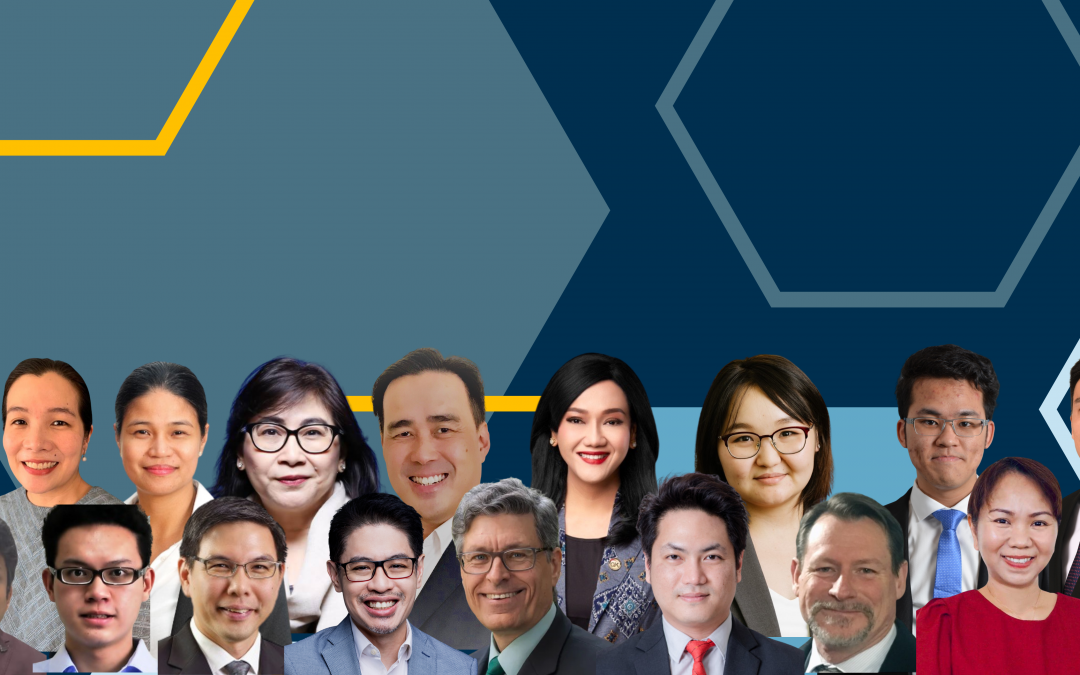Hi SupTech Community,
Welcome to the Cambridge SupTech Lab bi-weekly LinkedIn newsletter, a source for updates on recent innovations, breakthroughs, opportunities and upcoming events in the field of #suptech, as well as news from the Cambridge SupTech Lab team.
If you would like to flag any items for inclusion in the next newsletter, please email us at cambridgesuptechlab@jbs.cam.ac.uk. Occasionally, we also connect with our global community of supervisors, data scientists, vendors and suptech experts via email to share event invites, news or new courses – subscribe here.
Highlighted
- Suptech Hackathon 2023. We are delighted to share the outcome of the collaborative effort between the Cambridge SupTech Lab and the Alliance for Innovative Regulation (AIR), centered around the theme “Beyond Chatbots: Consumer Complaints Analytics.” This virtual hackathon, held from July 26 to August 4, brought together over 40 hackers forming 5 dynamic teams, displaying remarkable collaboration and innovation. With participation from 14 countries including Australia, Brazil, Canada, Egypt, India, Kenya, Malaysia, Nigeria, Pakistan, Philippines, Peru, Singapore, United Kingdom, and the United States of America, the hackathon showcased a diverse blend of expertise and perspectives. Furthermore, around 90 financial authorities from across the globe actively engaged with the virtual event, reflecting a broader ecosystem of enthusiastic participants beyond the hacking teams. The hashtag #SupTechHackathon2023 stands not only as a testament to the power of collaboration but also as a clear demonstration of technology’s potential to unite and innovate on a global scale. Watch the demo day video here.
Suptech Innovations
- The Korean Financial Supervisory Service’s (FSS) mis-selling detection tool. The FSS utilizes an artificial intelligence tool to transcribe recordings of insurers’ telemarketing activities and to classify them as mis-selling, if appropriate. After transcribing recordings of telephone conversations between insurers’ agents and customers, the tool also reviews the text by looking for keywords that should (and should not) be communicated to customers. It then assigns a score that each keyword will earn or lose and calculates the total score for each recording. The speech-to-text conversion has been able to detect 93.7 percent of irregularities in insurance product telemarketing. Read more here.
Research Spotlight
- Generative Artificial Intelligence in Finance: Risk Considerations. The International Monetary Fund (IMF) has published a new report highlighting the risks posed by using GenAI systems in the financial sector. Among these risks include those inherent in the technology (data privacy and embedded bias), those related to its performance (robustness, synthetic data, and explainability), new cybersecurity threats posed by GenAI, and broader risks to financial stability. Read more here.
- CPMI-IOSCO report on central counterparty practices to address non-default losses. The Bank for International Settlements’ Committee on Payments and Market Infrastructures (CPMI) and the International Organization of Securities Commissions (IOSCO) have published a report on current central counterparty (CCP) practices to address non-default losses (NDLs). They have highlighted the need for CCPs to have adequate resources and appropriate tools to address NDLs. Read more here.
- The Digital Regulation Cooperation Forum (DRCF) has launched the landmark “Quantum technologies insights paper.” This paper considers the nature and potential of quantum technologies and the issues that financial authorities should be thinking about now to prepare for a quantum-enabled world. Read more here.
Research Spotlight
- Reserve Bank of India (RBI) selects Mckinsey, Accenture to use artificial intelligence (AI) and machine learning (ML) to improve supervision. The RBI has hired consultants, Mckinsey and Accenture, to develop AI and ML systems for its supervisory functions. The financial authority wants to improve regulatory oversight of banks and non-bank financial companies by analysing data in its database using advanced analytics, AI and ML. Read more here.
- Monetary Authority of Singapore (MAS) establishes comprehensive regulatory framework for stablecoins. The MAS has finalized a comprehensive regulatory framework for stablecoins after taking into consideration feedback received during a public consultation in October 2022. This framework will be applicable to single-currency stablecoins (SCS) pegged to the Singapore dollar or any of the G10 currencies issued in Singapore. Read more here.
- Regnology, banking regulatory reporting system of the year. Regnology recently introduced the cutting-edge Rcloud solution, a collaborative effort with Google Cloud. This dynamic innovation amplifies regulatory reporting capabilities, capitalizing on cloud technology to deliver solutions across more than 30 regions, marked by flexibility, scalability, and data sovereignty. The solutions empower their clients to flourish amidst a swiftly evolving regulatory terrain, enabling them to anticipate the future of regulation with confidence. Read more here.
- Swiss banks to jointly explore digital Swiss franc. The group project is dedicated to crafting a robust legal and economic framework that facilitates the tokenization of deposits for participating banks. After evaluation encompassing regulatory compliance, technical feasibility, scalability, functionality, and alignment with efficiency and resilience goals, the chosen variant will establish the bedrock for a secure and transparent digital assets ecosystem. The introduction of a blockchain-based digital Swiss franc stands as a transformative stride toward the future of Swiss banking, integral for enhancing the competitiveness of the nation’s financial sector. Read more here.
- Sunoida’s Revolutionary Suptech Solution Garners International Acclaim. Sunoida’s Suptech Solution, designed for the National Bank of Rwanda (BNR), has earned recognition from the UN Capital Development Fund (UNCDF), setting a fresh standard in the field. The innovative Electronic Data Warehouse (EDW) system has been endorsed as the gold standard. Rwanda’s robust financial inclusion agenda demands precise, high-frequency data for monitoring financial inclusion progress. BNR’s collaborative venture with Sunoida Solutions has yielded an EDW system that automates and streamlines reporting processes fortifying and facilitating their supervisory responsibilities. Read more here.
- Drex, Brazil’s upcoming digital currency. The Central Bank of Brazil (BCB) recently revealed new details of its central bank digital currency (CBDC) project. Drex, as the currency has been newly named, is being developed on a distributed ledger technology platform that includes smart contracts, Hyperledger Besu. The currency is set to go live in 2024. Read more here.
Opportunities
- Basel Committee issues public consultation on revisions to the Core principles for effective banking supervision. The Committee welcomes comments on the revised Core Principles, which should be submitted by 6th October 2023. The proposed revisions seek to reflect supervisory developments and structural changes affecting the banking system since the previous update in 2012. Read more here.
- 4th Inclusive Insurance Innovation Lab (iii-lab). The 4th Inclusive Insurance Innovation Lab (iii-lab) hosted by the Access to Insurance Initiative invites diverse teams from various countries within the insurance sector to collaborate on pioneering insurance solutions that bolster resilience against the impacts of climate change. The central question is: How can innovation drive climate resilience in your jurisdiction? Beyond solution development, participants will also foster trust, strengthen networks, gain expertise in inclusive insurance, and launch projects that embrace customer-centric and experimental approaches. Read more here.
- The Cambridge SupTech Lab online programme Practical Data Science in Financial Supervision starts on September 25th. Learn more.
In case you missed it…
- Insurance AI Regulation Insights from the NAIC Summer meeting. NAIC Summer Meeting converged in Seattle, Washington, on August 13, 2023. Insurance leaders had a primary focus on overseeing and guiding the integration of AI within the insurance sector. Facilitated by the NAIC Innovation, Cybersecurity, and Technology (H) Committee in conjunction with the State of Colorado, these leaders collaborated to establish comprehensive AI guidelines for insurers. As the insurance sector rapidly integrates AI, regulators are diligently working to ensure consumer protection while fostering technological advancement. Read more here.
- IFRS to take over TCFD monitoring responsibilities. The IFRS Foundation’s International Sustainability Standards Board (ISSB) will take over responsibility for monitoring progress of companies’ climate-related disclosures from the Financial Stability Board’s (FSB) Task Force on Climate-related Financial Disclosures (TCFD) as of 2024, following a request from the FSB. The transfer of duties marks a significant step in the ongoing consolidation of sustainability reporting standards, following the publication of the inaugural ISSB Standards – IFRS S1 and IFRS S2- in June 2023. Read more here.
- The impact of suptech on banking supervision. This podcast brings together luminaries in the field, Jermy Prenio from the Bank for International Settlements and Ramunas Baravykas from the Bank of Lithuania. Jermy and Ramunas embark on a journey through the dynamic landscape of emerging technologies that are reshaping the future of suptech. With a global and EU-focused perspective, they delve into pivotal themes such as data analytics, the power of cross-border collaboration, and the ethical considerations surrounding the application of AI. Listen more here.
Upcoming Events
- FMI and fintech: oversight and innovation in payments and settlements event. This virtual event, hosted by Central Banking, brings together central bankers for three days of essential training on oversight and innovation in payments and settlements, between 26th and 28th September. Various themes will be covered including the impact of financial technology on central banking operations and oversight; opportunities and challenges presented by CBDCs, crypto assets, and stablecoins; and developing strategies for improving the efficiency and security of financial systems. Read more here.
- Central bank board: good governance, resilience and strengthening independence training. This virtual event, hosted by Central Banking, brings together central bankers for three days of essential training on good governance, resilience and strengthening independence, between 18th and 20th September. Participants will learn how to balance cultural shifts with maintaining identity and credibility in evolving financial landscapes, develop strategies for adapting policies and structures to address climate change and CBDCs and explore ways to prepare for potential market disruptions and mitigate the risks of geopolitical and financial instability. Read more here.
Subscribe to our newsletter! Just send us your name and email address here. Thank you!












